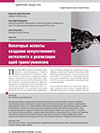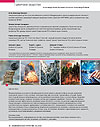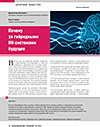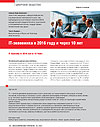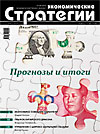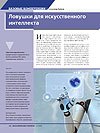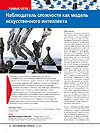Challenges of the Future: Artificial Intelligence, Technology, Ethics
DOI: 10.33917/es-6.164.2019.18-29
On April 17, 2019, the Civic Chamber of the Russian Federation held an expanded meeting of the expert-discussion club of the Association of Analytical Centers “Analytica” with participation of the RF Civic Chamber Commission on public diplomacy, humanitarian cooperation and maintenance of traditional values. The main purpose of the event was to discuss the challenges of the future and develop constructive proposals on the problems of artificial intelligence, technology and ethics. The keynote speaker was the president of the Global Ethics Foundation, founder and head of the Globethics.net social network, professor at the Basel University (Switzerland) Christoph Stuckelberger





